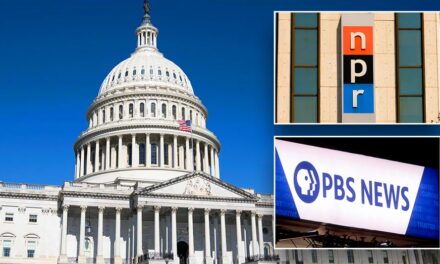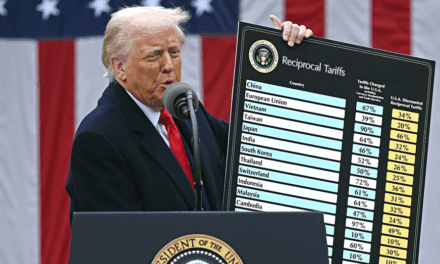In a bold move highlighting the increasing polarization of school governance in the United States, a prominent conservative Political Action Committee (PAC) has embarked on a strategic campaign to secure control of various school board positions across the country. This initiative reflects a growing trend of political engagement at the local level, as various groups respond to perceived education policies that do not align with their values.
The PAC, which has garnered significant financial backing from affluent donors and grassroots supporters, is capitalizing on heightened concerns surrounding educational standards, curriculum content, and the influence of social issues in classrooms. As debates around topics like critical race theory, gender identity, and parental rights become central to national discourse, this conservative group has recognized school boards as critical battlegrounds.
As local governance has become more pronounced in public life, school boards have emerged as pivotal institutions that can shape the educational landscape. The members of these boards have the authority to make decisions on budgets, curriculum, hiring practices, and educational priorities that impact millions of students and their families. The PAC’s objectives are strategically built around flipping these seats in favor of conservative values.
The strategy employed by the PAC is multi-faceted. It includes financial support for endorsed candidates, campaign training initiatives, and the mobilization of volunteers who are committed to the cause. With the support of local affiliates and conservative organizations, this initiative has gained momentum, resulting in a surge of candidates vying for positions on school boards nationwide.
One of the PAC’s primary goals is to increase parental influence in decision-making processes. Many parents across the political spectrum have expressed frustration over perceived disconnects between school boards and the communities they serve. The PAC aims to position its candidates as advocates for parents, prioritizing transparency in school operations and responsiveness to parental input. This focus resonates with many families who view education as a partnership between schools and homes.
The burgeoning movement also reflects broader national sentiments. According to a recent poll, a significant percentage of Americans believe that education is a crucial area where government intervention is necessary. Discontent with current educational content and policies has prompted an increased interest in school board elections, elevating their significance beyond what was traditionally seen as local governance.
As this PAC pushes its agenda, it faces challenges and opposition. Progressive groups have mobilized their resources to counteract conservative efforts, emphasizing the importance of maintaining what they deem inclusive educational practices. These groups argue that the conservative agenda threatens the diversity of thought and the representation of varying cultural and racial perspectives in education. They contend that focusing too heavily on specific ideologies can narrow the curriculum and ignore the complexities of societal issues that students face.
However, supporters of the conservative PAC argue that the modifications sought after are necessary to restore balance in the education system. They believe that the curriculum should prioritize foundational educational principles, focusing on academic rigor rather than on contentious social issues. The PAC’s endorsement candidate recruitment campaign highlights individuals who resonate with conservative educational reform ideas, aiming to create a manageable yet impactful slate of candidates at the ballot box.
The PAC has also recognized the power of digital campaign strategies in ensuring their message reaches wider audiences and mobilizes supporters. Utilizing social media platforms, it is targeting ads that resonate with families concerned about educational policies. This approach enables them to efficiently disseminate their message and garner grassroots support, making school board elections focal points for local activism.
In several districts across states like Texas, Florida, and Virginia, candidates backed by the PAC have seen an unexpected surge in support, leading to an increase in voter turnout for local school board elections. This momentum has prompted incumbents who previously faced little opposition to reconsider their stances on various educational issues, indicating that the conservative PAC’s campaign is having a tangible impact on local politics.
Some experts argue that this effort could establish a rift in American educational policy, leading to bifurcation in how education is delivered depending on district leanings. As school boards begin to reflect partisan divides, the landscape of education might evolve to emphasize more ultra-local narratives, potentially sidelining comprehensive discussions that promote unity and inclusivity.
Critics warn that if conservative ideologies dominate school boards, there is a risk of neglecting contemporary educational standards influenced by a diverse array of perspectives. As certain school boards enact policies that cater primarily to conservative viewpoints, it raises concerns about the implications these decisions hold for student experiences, learning opportunities, and the broadening of worldview exposure.
Amid these challenges, the conservative PAC remains steadfast in its mission to reshape school governance. The organization’s leadership emphasizes the necessity of engaging with local stakeholders to ensure candidates understand community values while advocating for changes that reflect those principles.
The implications of this movement extend beyond just educational policy; it symbolizes a larger effort to re-engage citizens in governmental processes concerning their communities. Many supporters see this as a reclaiming of control over educational narratives they believe have drifted away from the fundamental principles of familial empowerment and community engagement.
With the upcoming midterm elections on the horizon, local races for school board positions are becoming focal points for many constituencies, as they represent an avenue for voters to express their educational priorities. This heightened interest underscores the necessity for local initiatives that can mobilize voter participation and galvanize support on both sides of the political spectrum.
In conclusion, the initiative spearheaded by this conservative PAC encapsulates a growing trend of political activism in local education governance. As school board elections take center stage, the fiscal and strategic investments made by the PAC aim to reshape the school environments and introduce a new era of educational administration that reflects conservative values. As with all political movements, the ultimate outcomes remain uncertain, but the ramifications of these shifts will undoubtedly be felt across communities nationwide in the years to come.
































